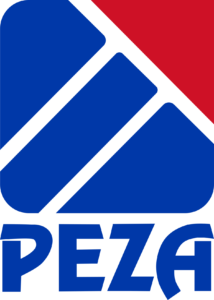-
The Bureau of Internal Revenue has approved Philippine Economic Zone Authority’s decision to consider certain COVID-19-related costs of PEZA-registered enterprises as direct costs deductible for computing the 5% gross income tax
-
Among those considered direct costs are port charges at Manila ports arising from delays in shipment release immediately after ECQ implementation in the National Capital Region
-
PEZA extended until December 31 its assistance to ecozone IT enterprises to facilitate ease of movement of equipment and other assets for the setup of work-from-home operations
 Certain costs and charges incurred by Philippine Economic Zone Authority (PEZA)-registered business enterprises (RBEs) during the pandemic may be considered direct costs eligible for income tax incentives.
Certain costs and charges incurred by Philippine Economic Zone Authority (PEZA)-registered business enterprises (RBEs) during the pandemic may be considered direct costs eligible for income tax incentives.
This developed after the Bureau of Internal Revenue (BIR) approved PEZA’s decision to allow certain costs and charges as direct costs deductible for computing the 5% gross income tax.
PEZA’s decision is part of its assistance to RBEs to help cushion impact of the coronavirus disease (COVID-19) pandemic, PEZA said in a statement.
RBEs enjoy a 5% preferential tax rate on gross income earned in lieu of all national and local taxes—except real property taxes on land owned by developers—after the expiration of their income tax holiday.
The PEZA Board approved the consideration of the following as direct costs for RBEs that are entitled to the 5% GIT incentive:
- Cost of temporary (near-site) housing/accommodations for the enterprise’s employees, including accommodations inside the enterprise’s facility for stay-in employees
- Cost of shuttle services for employees
- Port charges arising from delays in the release of shipments at Manila International Container Port, Port of Manila, and Ninoy Aquino International Airport immediately after the enhanced community quarantine (ECQ) was implemented in the National Capital Region last March to May
- Cost of disinfection conducted by the company at its work area/facility/premises, and cost of personal protective equipment (PPE) and sanitation requirements
- COVID-19 tests for their employees
In response to a PEZA letter dated October 27, 2020, BIR noted that “if the enumerated expense can be directly attributed in providing the PEZA-registered services, then it should be treated as direct cost, otherwise, it is non-deductible.”
The assistance, however, is only applicable for periods of ECQ, modified ECQ, and general community quarantine, and is without prejudice to BIR’s inherent power to audit the expenses.
For the cost of providing temporary housing/accommodation as well as shuttle services, BIR said “only the cost of temporary accommodation [and for shuttle services] for operations and maintenance personnel may be considered as direct cost, as they are the employees whose work can directly be attributed to the PEZA-registered services.”
BIR also noted that the port charges may be considered direct costs pursuant to Section 27 (a) of the National Internal Revenue Code of 1997. BIR noted these port charges must be those “arising from delays in the release of shipments only for finished goods or raw materials used in providing the PEZA-registered services.”
Further, the “cost for disinfecting and cost for PPEs and sanitation requirements, for as long as incurred for operations and maintenance personnel and the work area/facility/premises which such personnel work in, may be considered direct costs.”
For COVID-19 tests, however, BIR has found “it is not directly related to the rendition of its registered service, since the enterprise can still carry on its PEZA-registered services without having to incur cost for the COVID-19.”
“Hence, unless it can be proven that such COVID tests are directly related to the registered services, then they should be classified as operating expenses and must be disallowed as a direct cost,” it added.
PEZA director general Charito Plaza thanked BIR for supporting PEZA’s initiative to assist its locator companies.
“This is a great way to help our RBEs who, despite being hit by the pandemic, they are the ones keeping our economy afloat. With sound economic and legal policies, we must continue to do our best to keep these companies in our country despite the present uncertainties,” Plaza said.
“Since the start of the lockdown in March in the country, PEZA’s registered companies have implemented strict COVID-19 measures to protect the health and safety of the Filipino workforce while continuing to contribute in the global supply and demand,” Plaza noted.
Extended assistance to IT firms
Meanwhile, PEZA in Memorandum Circular (MC) No. 2020-040 extended until December 31, 2020 the assistance to ecozone information technology (IT) enterprises under MC 2020-011.
MC 2020-040 aims to further assist PEZA IT enterprises in their operations during the COVID-19 pandemic and to facilitate the continued ease in movement of their IT equipment and other assets for the purpose of setting up work-from-home operations and other work arrangements outside their PEZA-registered IT Center facilities.
The PEZA Board also approved on October 2 extension of effectivity of the 90% limit on the work-from-home arrangement until September 12, 2021. – Roumina Pablo





